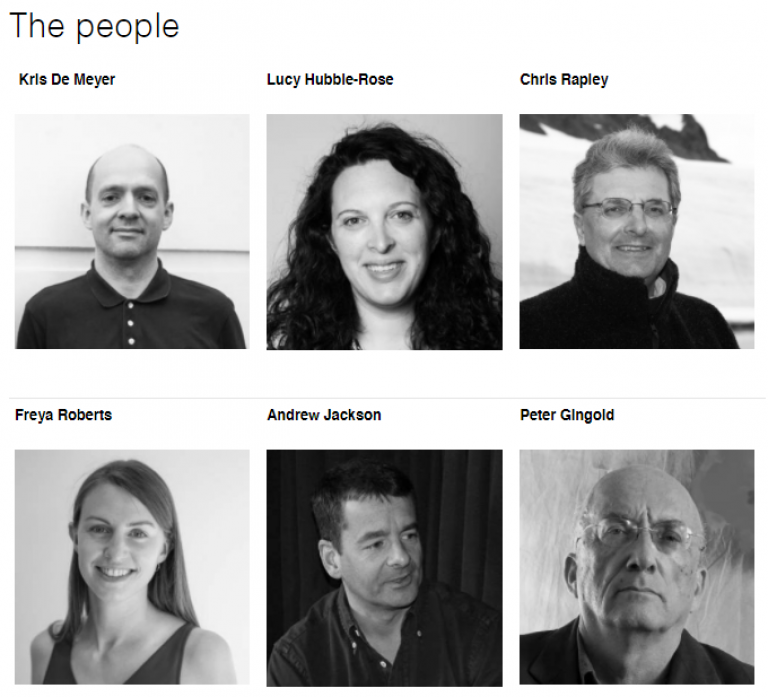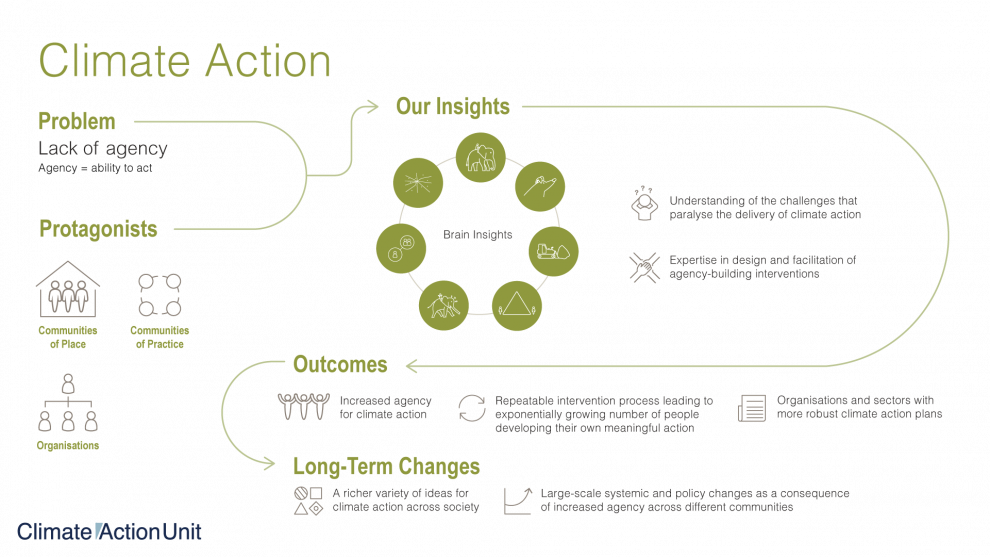The UCL Climate Action Unit - Overcoming the human barriers to tackling climate change.
21 September 2021
"I know climate change is a big problem, but what can I do about it?!” That often heard question is exactly what a new team - the UCL Climate Action Unit - is seeking to address.

“I know climate change is a big problem, but what can I do about it?!” That often heard question is exactly what a new team - the UCL Climate Action Unit - is seeking to address. Drawing on expertise from neuroscience, psychology, communications and expert facilitation, the team aims to transform how society acts on climate change.
The Climate Action Unit launched on the 8th July 2021, and has newly found a home in the Department of Earth Sciences under the guidance of Prof Chris Rapley. The Unit emerged from the UCL Communicating Climate Science Policy Commission, which Prof Rapley chairs.
Helping people discover their ‘agency’ for climate action
The Climate Action Unit supports professionals from different disciplines and sectors to deal with the human blockages preventing action on climate change. We call these blockages the ‘people factors’ of climate action. They occur at all levels from policy and business to academia and within the wider community.
The Unit’s first-hand experience shows that it is these blockages, not a lack of data and information, that lie at the heart of much societal paralysis. This isn’t a new concept - the gap between people’s pro-environmental values and their actual actions has been showing up in research since the 1970s. But effective ways to close the value-action gap have never been established. It is now becoming ever more of a problem in how society fails to adequately deal with the climate crisis.
The Climate Action Unit works with professionals in government and business - from local councils over Members of Parliament to international policymakers or people working in finance. Through carefully crafted interventions, we help them to develop their ‘agency’ for climate action - in other words, knowing how to make action on climate change a part of their job roles and responsibilities.

Caption: Climate Action -theory of change - infographic
A rapidly expanding list of interventions and project partners
Because similar ‘people factors’ show up at all levels in society, the Climate Action Unit works with partners across all disciplines and sectors. Here are a few examples of current projects:
- With Chatham House we co-authored Climate change risk assessment 2021, targeted at Heads of Government. Its framing and messages are grounded in psychological insights into how people perceive risk. They were tested and refined in workshops with international officials who brief ministers and presidents on climate change.
- For the COP26 Universities Network, we delivered a workshop on the communication of climate risk, and wrote Communicating Climate Risk: a Handbook.
- With Chatham House and digital studio Fast Familiar, we created Policy Pathways - a virtual gym for climate policy. It is intended to help policymakers think creatively about using existing policy levers to deliver more ambitious climate policy.
- For the Local Government Association and UCL Public Policy, we are delivering the Net Zero Innovation Programme, equipping universities and council partners to effectively work together in the delivery of local climate action plans.
Looking at 2022
The outlook for the unit is bright as we enter 2022. MAPS is delighted to welcome a full time Project Manager for the Climate Action Unit - Freya Roberts. Freya is a former Science Writer for the website Carbon Brief and an Environmental Sciences graduate. She has worked at UCL for 6 years, and joins the Climate Action Unit team full-time after completing a year-long secondment in 2021.
To get in touch with the Climate Action Unit and find out more about its activities visit ucl.ac.uk/climate-action-unit or email us at climateactionunit@ucl.ac.uk
 Close
Close

